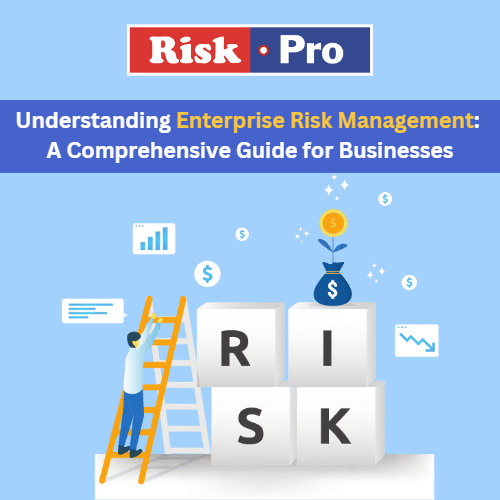
In today's complex and rapidly evolving business landscape, it is crucial for organizations to effectively manage risks that can impact their operations, reputation, and bottom line. This is where Enterprise Risk Management (ERM) comes into play. ERM is a strategic approach that enables businesses to identify, assess, and mitigate risks across all areas of their operations. In this blog post, we will delve into the fundamentals of ERM and explore its significance in modern business environments.
1. What is Enterprise Risk Management?
Enterprise Risk Management (ERM) is a systematic and integrated approach to managing risks faced by organizations. It involves identifying, assessing, prioritizing, and mitigating risks in order to protect and enhance an organization's value. ERM goes beyond traditional risk management by considering a broader range of risks, including strategic, financial, operational, and compliance-related risks.
2. The Benefits of Implementing ERM:
Implementing a robust ERM framework offers several advantages for businesses:
a. Improved Decision Making: ERM enables organizations to make more informed and strategic decisions by considering potential risks and their potential impacts.
b. Enhanced Risk Awareness: ERM fosters a risk-aware culture within the organization, ensuring that risks are identified and addressed proactively.
c. Better Resource Allocation: By understanding and prioritizing risks, ERM helps businesses allocate resources effectively to manage and mitigate these risks.
d. Competitive Advantage: Organizations with a strong ERM framework are better equipped to navigate uncertainties and disruptions, giving them a competitive edge in the market.
3. Key Components of ERM:
a. Risk Identification: The first step in ERM is to identify potential risks across all areas of the organization. This can be done through risk assessments, interviews, process analysis, and data analysis.
b. Risk Assessment and Prioritization: Once risks are identified, they must be assessed and prioritized based on their likelihood and potential impact. This allows businesses to focus their resources on managing high-priority risks.
c. Risk Mitigation Strategies: After prioritizing risks, organizations develop and implement strategies to mitigate or control these risks. This may involve implementing internal controls, creating contingency plans, or transferring risks through insurance.
d. Monitoring and Review: ERM is an ongoing process that requires regular monitoring and review. By continuously monitoring risks and the effectiveness of mitigation strategies, organizations can adapt and respond to changing risk landscapes.

4. Best Practices for Successful ERM Implementation:
a. Leadership Commitment: ERM implementation requires strong leadership commitment and support throughout the organization.
b. Integrated Approach: ERM should be integrated into the organization's overall strategic planning and decision-making processes.
c. Risk Culture: Foster a risk-aware culture by encouraging employees to report risks, providing training on risk management, and recognizing proactive risk management efforts.
d. Communication and Collaboration: Effective communication and collaboration are essential for successful ERM. Encourage open dialogue among departments and stakeholders to share risk information and insights.
e. Continuous Improvement: ERM is an iterative process. Regularly assess and refine your ERM framework to ensure it remains effective and aligned with organizational goals.
Enterprise Risk Management is a critical discipline that enables businesses to proactively identify, assess, and mitigate risks across their operations. By implementing an effective ERM framework, organizations can make informed decisions, protect their value, and gain a competitive advantage in today's dynamic business environment. Embrace ERM as a strategic tool to navigate uncertainties and safeguard the long-term success of your enterprise. To know more about our Enterprise Risk Management advisory, please contact us at info@riskpro.in
